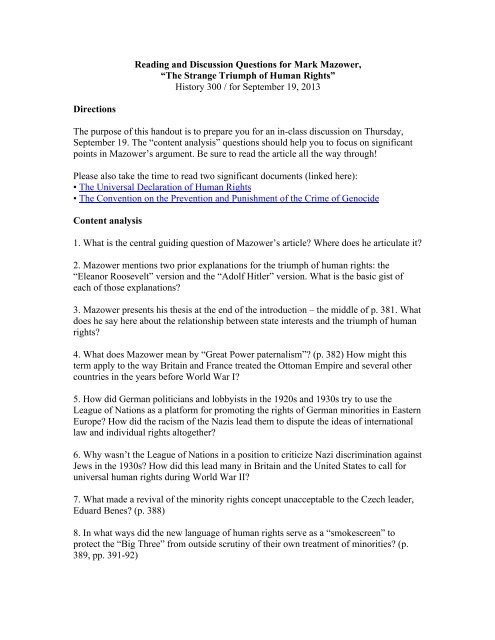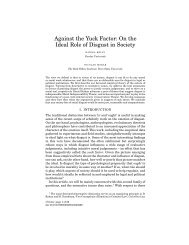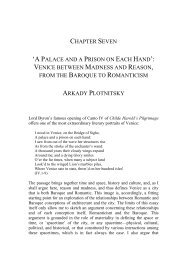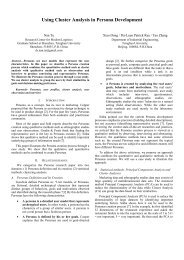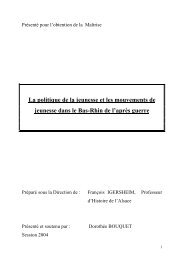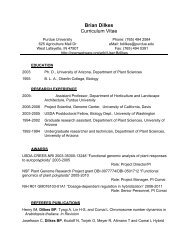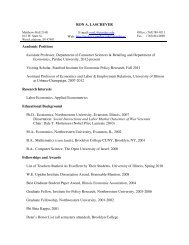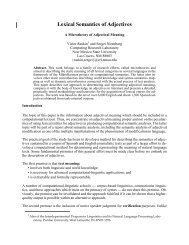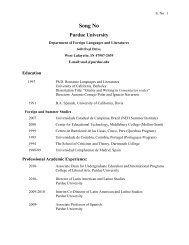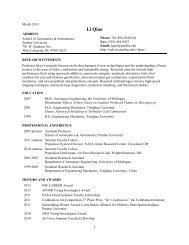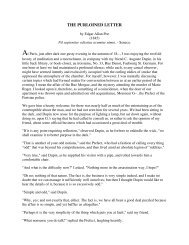Reading questions on Mazower
Reading questions on Mazower
Reading questions on Mazower
Create successful ePaper yourself
Turn your PDF publications into a flip-book with our unique Google optimized e-Paper software.
<str<strong>on</strong>g>Reading</str<strong>on</strong>g> and Discussi<strong>on</strong> Questi<strong>on</strong>s for Mark <strong>Mazower</strong>,<br />
“The Strange Triumph of Human Rights”<br />
History 300 / for September 19, 2013<br />
Directi<strong>on</strong>s<br />
The purpose of this handout is to prepare you for an in-class discussi<strong>on</strong> <strong>on</strong> Thursday,<br />
September 19. The “c<strong>on</strong>tent analysis” <str<strong>on</strong>g>questi<strong>on</strong>s</str<strong>on</strong>g> should help you to focus <strong>on</strong> significant<br />
points in <strong>Mazower</strong>’s argument. Be sure to read the article all the way through!<br />
Please also take the time to read two significant documents (linked here):<br />
• The Universal Declarati<strong>on</strong> of Human Rights<br />
• The C<strong>on</strong>venti<strong>on</strong> <strong>on</strong> the Preventi<strong>on</strong> and Punishment of the Crime of Genocide<br />
C<strong>on</strong>tent analysis<br />
1. What is the central guiding questi<strong>on</strong> of <strong>Mazower</strong>’s article? Where does he articulate it?<br />
2. <strong>Mazower</strong> menti<strong>on</strong>s two prior explanati<strong>on</strong>s for the triumph of human rights: the<br />
“Eleanor Roosevelt” versi<strong>on</strong> and the “Adolf Hitler” versi<strong>on</strong>. What is the basic gist of<br />
each of those explanati<strong>on</strong>s?<br />
3. <strong>Mazower</strong> presents his thesis at the end of the introducti<strong>on</strong> – the middle of p. 381. What<br />
does he say here about the relati<strong>on</strong>ship between state interests and the triumph of human<br />
rights?<br />
4. What does <strong>Mazower</strong> mean by “Great Power paternalism”? (p. 382) How might this<br />
term apply to the way Britain and France treated the Ottoman Empire and several other<br />
countries in the years before World War I?<br />
5. How did German politicians and lobbyists in the 1920s and 1930s try to use the<br />
League of Nati<strong>on</strong>s as a platform for promoting the rights of German minorities in Eastern<br />
Europe? How did the racism of the Nazis lead them to dispute the ideas of internati<strong>on</strong>al<br />
law and individual rights altogether?<br />
6. Why wasn’t the League of Nati<strong>on</strong>s in a positi<strong>on</strong> to criticize Nazi discriminati<strong>on</strong> against<br />
Jews in the 1930s? How did this lead many in Britain and the United States to call for<br />
universal human rights during World War II?<br />
7. What made a revival of the minority rights c<strong>on</strong>cept unacceptable to the Czech leader,<br />
Eduard Benes? (p. 388)<br />
8. In what ways did the new language of human rights serve as a “smokescreen” to<br />
protect the “Big Three” from outside scrutiny of their own treatment of minorities? (p.<br />
389, pp. 391-92)
9. What was the difference between a “guarantee” of human rights and a “declarati<strong>on</strong>” in<br />
favor of “promoting and favoring” human rights? According to the UN Charter, who was<br />
resp<strong>on</strong>sible for ensuring that human rights were respected – sovereign states or the<br />
United Nati<strong>on</strong>s Organizati<strong>on</strong>? (pp. 392-93)<br />
10. How did the UN General Assembly emerge as a forum where human rights abuses in<br />
particular states might be held up for criticism? Why did the UN Human Rights<br />
Commissi<strong>on</strong> nevertheless prove to be toothless? (pp. 394-95)<br />
11. <strong>Mazower</strong> does not describe them in detail, but 1948 saw the adopti<strong>on</strong> of both a<br />
“Universal Declarati<strong>on</strong> <strong>on</strong> Human Rights” and a “C<strong>on</strong>venti<strong>on</strong> <strong>on</strong> the Preventi<strong>on</strong> and<br />
Punishment of the Crime of Genocide.” Based <strong>on</strong> what you have read, which of these two<br />
documents would you expect to have carried legal force? Which of them was a n<strong>on</strong>binding<br />
statement?<br />
Evaluati<strong>on</strong><br />
12. How well does <strong>Mazower</strong> back up his argument with relevant detail? Would you<br />
c<strong>on</strong>sider this to be a tightly focused article or a meandering, impressi<strong>on</strong>istic piece?<br />
13. Are you c<strong>on</strong>vinced by the author’s interpretati<strong>on</strong>? Do you buy his claims about the<br />
relatively minor role played by idealistic individuals and revulsi<strong>on</strong> against Nazism in<br />
explaining the “human rights revoluti<strong>on</strong>” of the 1940s?<br />
14. How would you characterize <strong>Mazower</strong>’s general perspective <strong>on</strong> internati<strong>on</strong>al<br />
relati<strong>on</strong>s? Is he optimistic, pessimistic, or somewhere in between?


